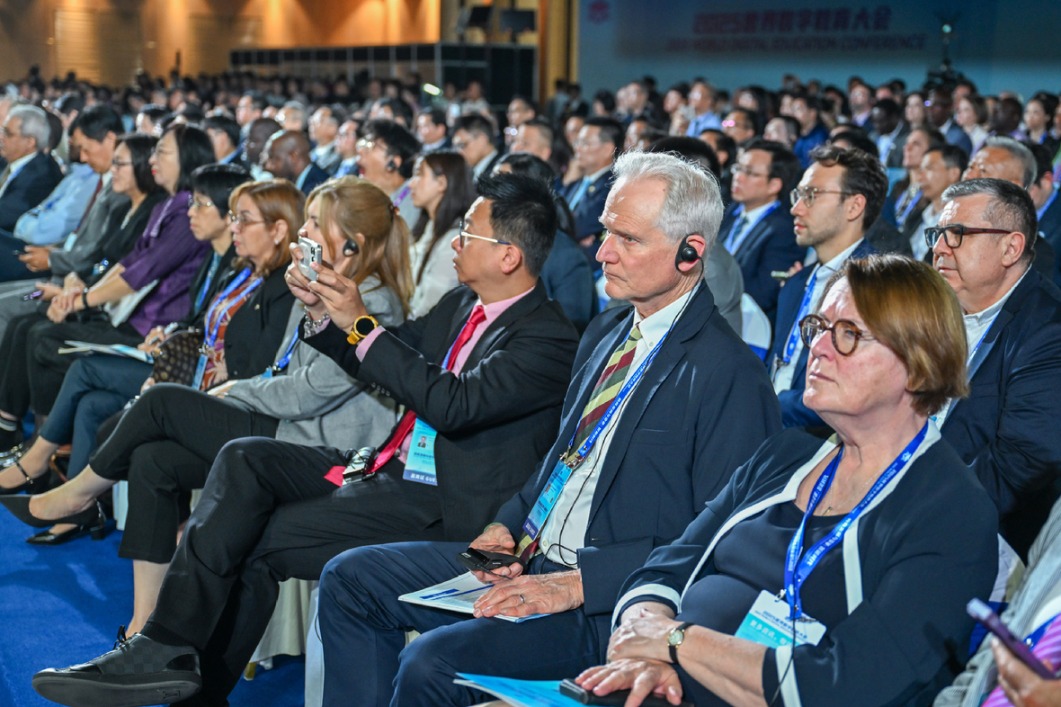Smart steps for futuristic education
Ministry releases white paper outlining tools to support educators in digital age


China calls for cultivating future-ready teachers, classrooms, schools and learning centers to meet the demands of the digital age, according to a white paper released during the 2025 World Digital Education Conference in Wuhan, Hubei province, which concluded on Friday.
The White Paper on China's Smart Education, issued by the Ministry of Education, declared 2025 the inaugural year of "smart education", outlining a sweeping vision for transforming the country's education system through artificial intelligence.
Artificial intelligence is fundamentally reshaping how knowledge is delivered, how students learn, and how education systems are governed, setting a new trajectory for educational reform, it said.
"AI will give teachers new roles and missions," it said. Educators will be supported by intelligent tools that automate lesson planning and provide tailored instructional materials, easing administrative burdens and allowing more time for creative teaching.
It will also assist in grading and analyzing homework, helping teachers track student progress and offer personalized services. Meanwhile, AI-driven multimodal data systems will evaluate teaching effectiveness, offering targeted recommendations to help instructors continuously improve teaching.
According to the white paper, classrooms can be reimagined in the future, where teachers, students and intelligent machines work seamlessly together. Emerging technologies such as big data, virtual simulations and immersive environments will become central to instruction, fostering greater student engagement and knowledge construction.
Smart schools of the future will use AI across every level of management from resource planning to personalized student evaluation. By analyzing labor market demands, AI can help align regional school programs with economic needs. It can also predict demographic changes to ensure the precise allocation of education resources, the white paper said.
AI-powered tools will offer assessments of well-rounded student development, shifting the focus from rote learning to holistic growth, it added.
In addition, student-centered future learning centers will integrate multimodal technologies to nurture core competencies. These centers will emphasize interdisciplinary and industry-based learning, powered by digital platforms that connect MOOCs, virtual labs and smart textbooks, it said.
Personalized learning will be supported through precise recommendations based on AI profiling and big data analytics, aiming to help individuals adapt and thrive in the AI-driven world.
Apart from technological infrastructure, the white paper highlighted a fundamental shift in educational values and content. Future education is expected to nurture students' critical thinking, moral integrity and psychological resilience, it said.
Cognitive skills, including innovation and systems thinking, and collaborative problem-solving will become core capabilities for students in the future, the white paper said. It also urges the responsible use of AI in education, calling for ethical guidelines and data privacy protections to prevent misuse.
Contact the writers at zhaoyimeng@chinadaily.com.cn




































